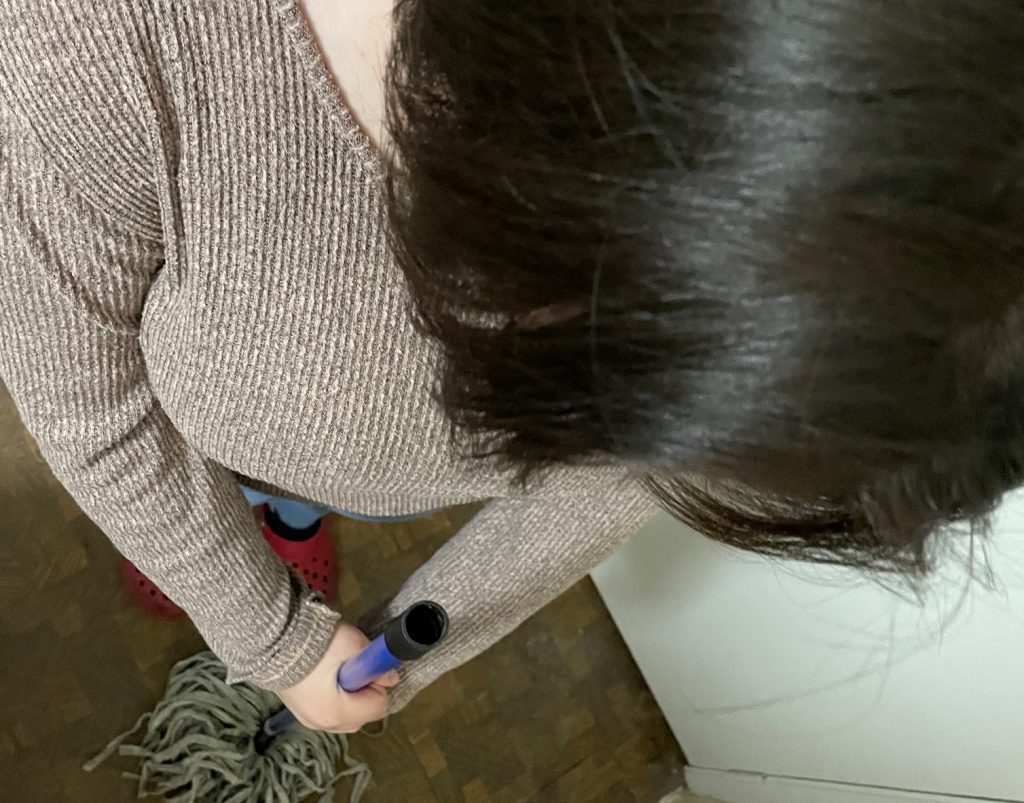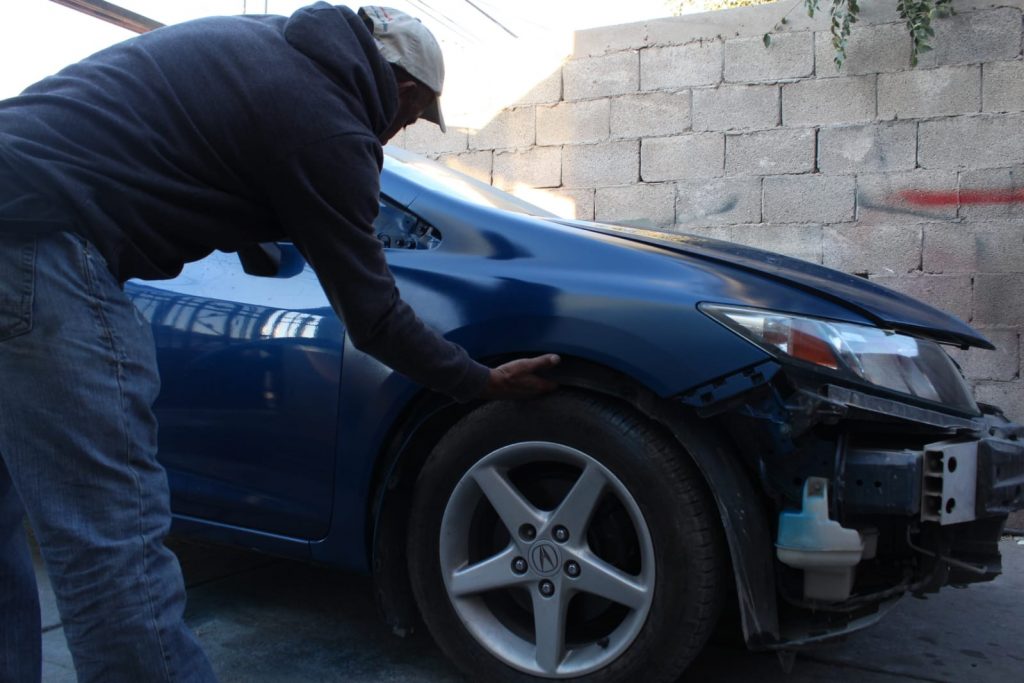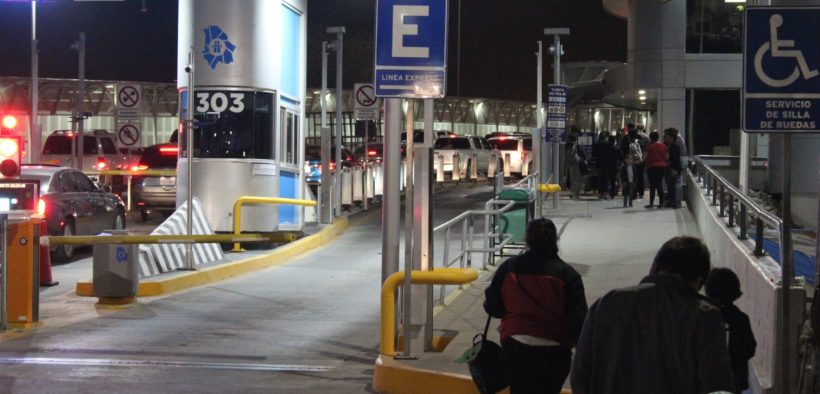By Iván Gómez Cruz/La Verdad
CIUDAD JUAREZ – Although Lara has not been able to cross the border for her job cleaning houses for 20 months, the 45-year-old woman said she never lost contact with her El Paso employers. With Monday’s reopening of the U.S. border to non-essential travelers she said that “with God’s favor” she will return to work.

Since 2018, Lara worked as a maid for three families in El Paso to help support her family. But in March 2020, the U.S. government closed the border due to the health crisis unleashed by COVID-19. Sometimes she crossed on foot and sometimes she got an acquaintance to take her by car, she said.
The woman, who spoke on condition that her full name not be used because her employment is not authorized with the use of the tourist visa granted by the United States, says she was comfortable with the dynamics of her cross-border work, and did not imagine that a pandemic would force her to change her routine.
“I got a little dislocated when they announced the closure, because you’re used to an income and suddenly they tell you that you can’t cross anymore, so I did worry a little bit. What I have done this time has been to sell food, deliver it at home, sell different things online. The truth is that I support myself a lot in social networks,” said Lara, who lives in the northwest of Juárez and is the mother of four children, all of them of legal age and two of whom are university students.
Although she managed not to stop providing for her family, she said she earns less than what she was paid by the families for whom she worked in El Paso.
“Reopening is important for the economy of the two cities. Many Juárez households depend on their work on the other side,” Lara said.

Although there is no exact data on the number of informal cross-border workers between Ciudad Juárez and El Paso, a report by the El Paso Department of International Bridges, in collaboration with the Colegio de la Frontera Norte, estimated that 20 percent of the total number of people who cross this border do so for work.
That is the case of Kika, 70, who for years has taken informal work with her tourist visa, which allows her to cross the border to see family and friends, to go shopping and enjoy social gatherings — but not work.
Until the United States closed its border with Mexico to non-essential travel, the woman, who also asked for the protection of her identity, worked for a couple who live in the Sunland Park, New Mexico, area. Her job was to clean the house.
Now Kika is prepared to cross again. She is fully vaccinated and would like to work with her old “bosses” again, even though she has lost contact with them.
“They are good people, they pay well,” Kika said.
She said she first contacted her employers through her comadre and compadre, who live in El Paso.
Every Saturday she left her home in Colonia La Cuesta very early, took the bus and arrived at the Paso del Norte Bridge to cross with her tourist visa.
Once on the U.S. side, she took another bus that left her very close to the house she would clean. She returned home on the same day. It was a single working day and that was enough to pay the bills and take care of her daughter and two granddaughters.
Kika’s daughter is 43 years old and used to iron other people’s clothes for a living until an accident made it impossible for her to walk. Since then, Kika is the main support of her home.
Since the border closure she has cleaned three houses in Ciudad Juárez, although her pay is much lower than what she made in El Paso.
“Here I get paid very little, but my oldest granddaughter is already in high school and I have to pay for the registration and the materials they order. Here in Juárez … what they pay me is very little, 300 pesos (abou $15) in each house,” Kika said with resignation.
Another informal worker who prepared to cross the border again is a man nicknamed El Chuky, as he asks to be identified.
He is 52 years old, lives between Las Torres Avenue and Libramiento, and is the father of a 17-year-old boy and a 12-year-old girl. He worked in a body shop in El Paso until March 2020.
For him, the closure of the border during the health crisis was not so regrettable, because his work experience with El Pasoans was not exactly pleasant.
“I earned $150 for each car, so between Saturday and Sunday I brought $300, but then my boss wanted to pay me by the hour and that’s not how it works,” El Chuky said.

At another El Paso workplace, he had to work until after 10 p.m. on Mondays, “because if you leave earlier on the same day of each week the (border) agents start questioning you. You have to learn what to say, because they put pressure on you.”
At first he crossed in his truck, until a border agent raised questions about the number of days the vehicle remained in El Paso. El Chuky told the agent that the transmission failed him and that is why he left it. After that, he rode a bicycle across the border.
Although he made more money working in El Paso, El Chuky said he did not have a good experience. He said he will return to El Paso, but only to buy clothes, because the improvement of his craft and the disenchantment of the American dream have made him value his life in Ciudad Juárez.
“Now I’m earning $380 a week, I charge 15, 13, 12 thousand pesos depending on the car and the work that has to be done. I realized that money can also be made here. People knew me, they knew what I do and they like it, so I charge what I consider fair,” El Chuky said.

